
Sustainable Initiatives
Murphy’s commitment to sustainability extends in many directions. Over the years, we have developed a reputation for Green innovation, risk-taking, and leadership that is unique in our industry. Kirk Fischer, CEO and President, is a strong advocate for good corporate citizenship and continues to be a thought leader in the use of Green technologies in business.
NATIVE PRAIRIE RESTORATION
A Murphy campus is immediately recognized for the native prairie grasses, flowers and trees that surround our sites. In fact, many of our neighbors lovingly refer to us as “the company with all the flowers.”
Our native prairies create a natural buffer between surrounding neighborhoods, hiding large warehouse buildings and reducing industrial noise. Aesthetics aside, native prairies are often the first and most powerful step in maintaining an environmentally friendly site. Eliminating the need for lawn maintenance, aiding in storm water management, carbon sequestration and soil conservation.
Our customers see the benefit of our prairies through our reduced operating costs. Talk about green!
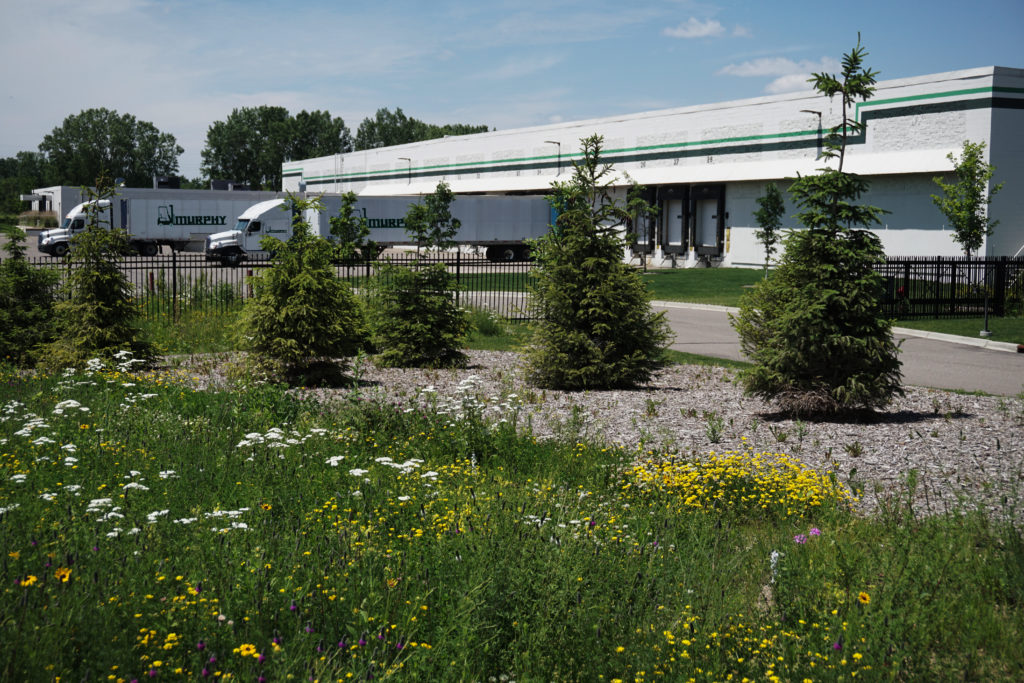
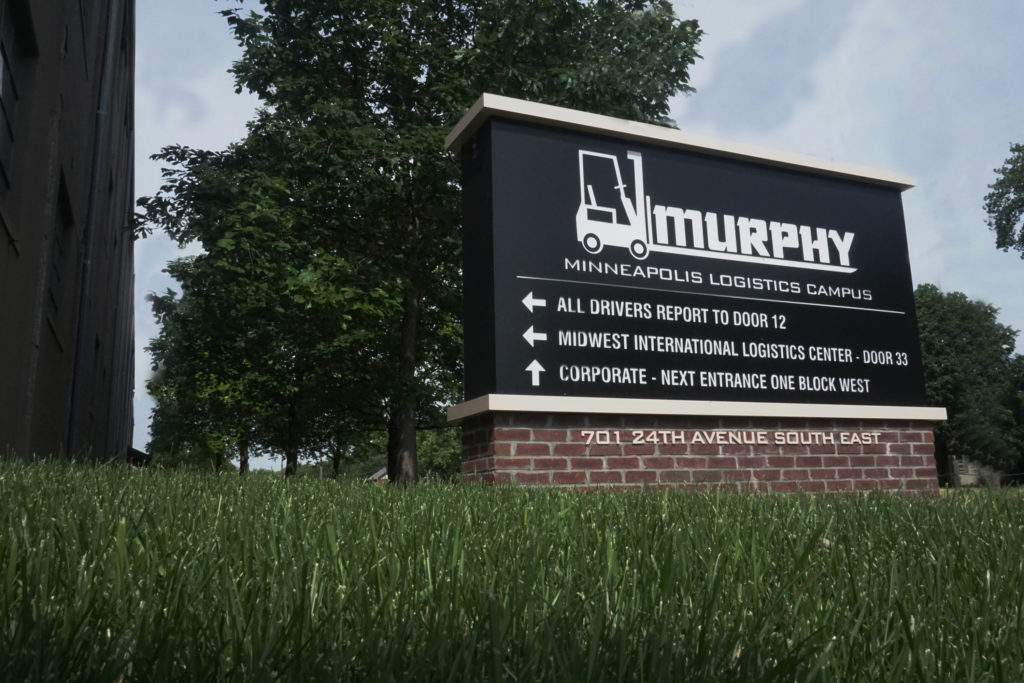
RECYCLING PROGRAM
Murphy has a comprehensive recycling program, from our offices to the warehouse floor. Each year, we recycle about two tons of paper – enough to save 30 trees – and approximately 150,000 pounds of cardboard. We also recycle more than 30,000 pounds of plastic bottles, cans and glass each year from bins around our offices and break rooms, and we frequently repurpose and reuse office furniture. On the industrial side, truck batteries and air brakes are recycled at a 1:1 ratio. We also recycle oil, wooden pallets, plastic air bags and light bulbs.
GREEN PURCHASING
Murphy uses environmentally friendly goods in the daily operation of our business. These items range from Rainforest Alliance certified tea and free trade coffee, recycled office paper and furniture, to 100 percent recycled entrance mats, organic starch packing peanuts, “green” cleansers and degreasers, etc.
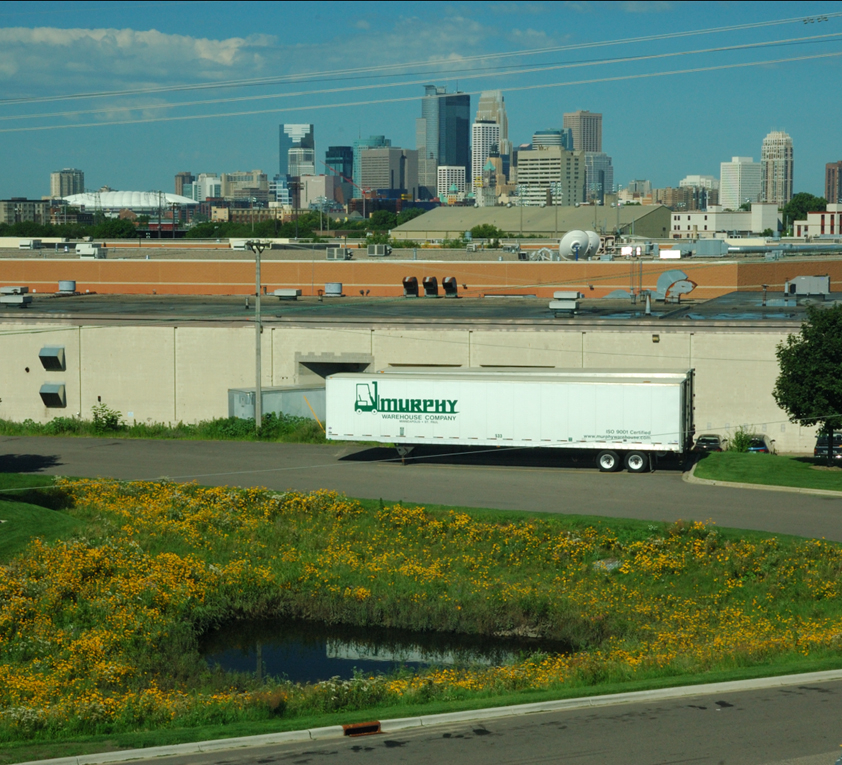
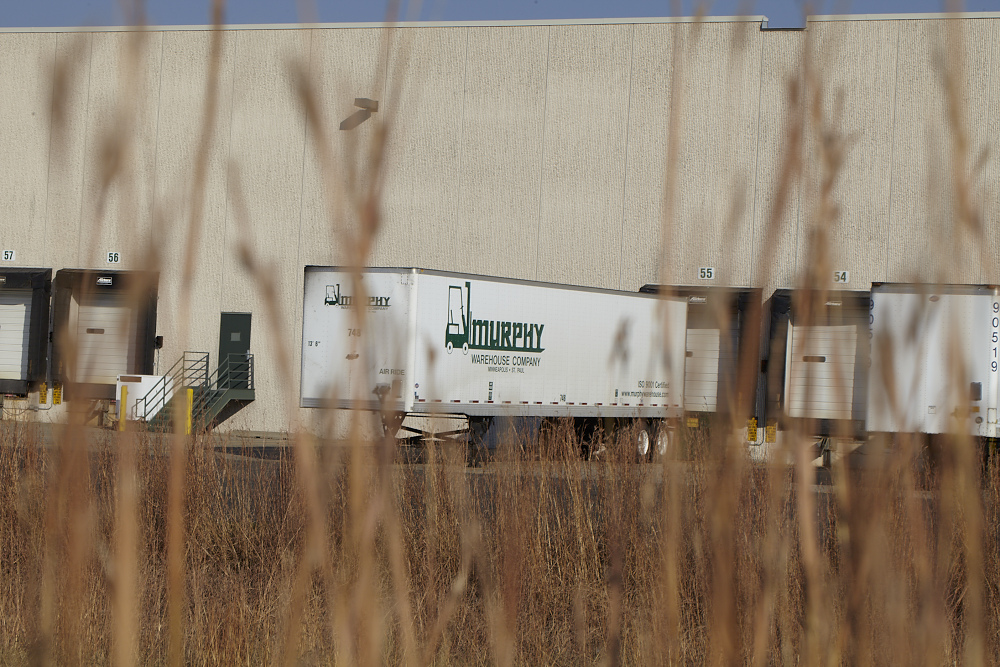
CARBON NEUTRALITY
Murphy’s drive toward environmental suitability has effectively made some of our sites carbon neutral. At Murphy’s Fridley logistics campuses, the 14 acres of native prairie and tree plantings alone retain more than 142 MtCO2e** per year. In other words, 5.1 million pounds of carbon have been captured and recycled by the company’s landscaping since 1996. From native prairie restoration to solar power generation, Murphy manages its carbon footprint head-on. Our customers also benefit and can claim our carbon management toward their own environmental certification efforts.
** Million metric tons of carbon dioxide equivalent
SMART LIGHTING
Over the years, Murphy has upgraded lighting systems at our logistics campuses in favor of more energy efficient technology, including LED lighting. Known for its unparalleled energy efficiency and versatility, LED technology is ideal for use both inside and outside the warehouse. Our new Eagan logistics campus is fully lit with LEDs, making it the largest building in the Midwest equipped with LED lighting. The exterior lighting is also unique, as these LEDs are designed to operate at 20-25 percent of their luminosity at night. In the event of a driver arriving for a night-time pick-up or delivery, or an intrusion at the site, the motion sensors bring the lights up to 100 percent.
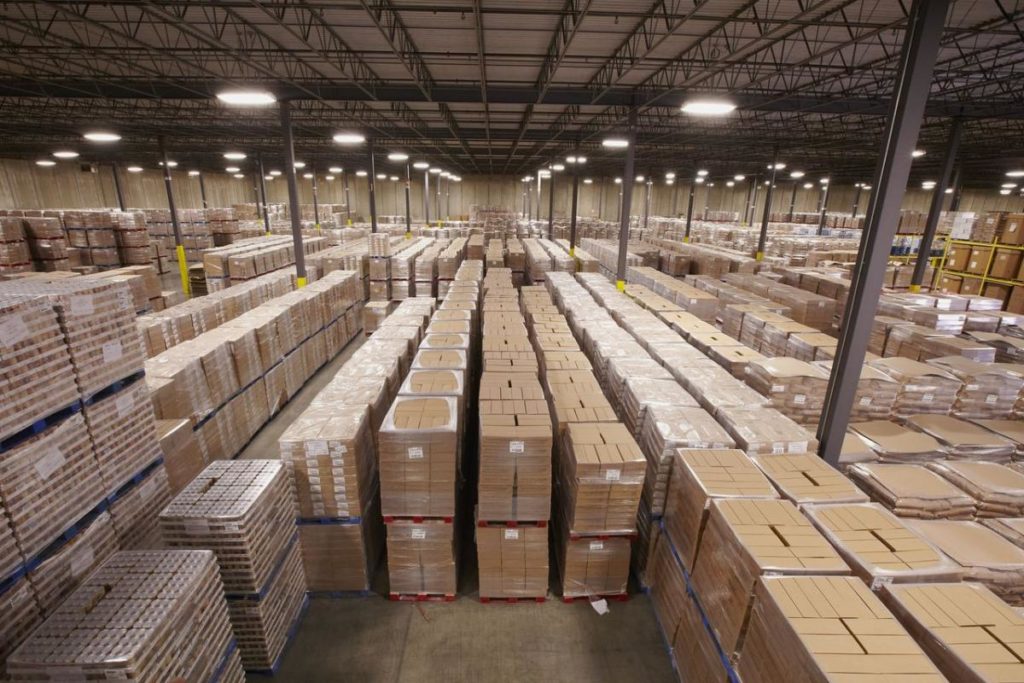
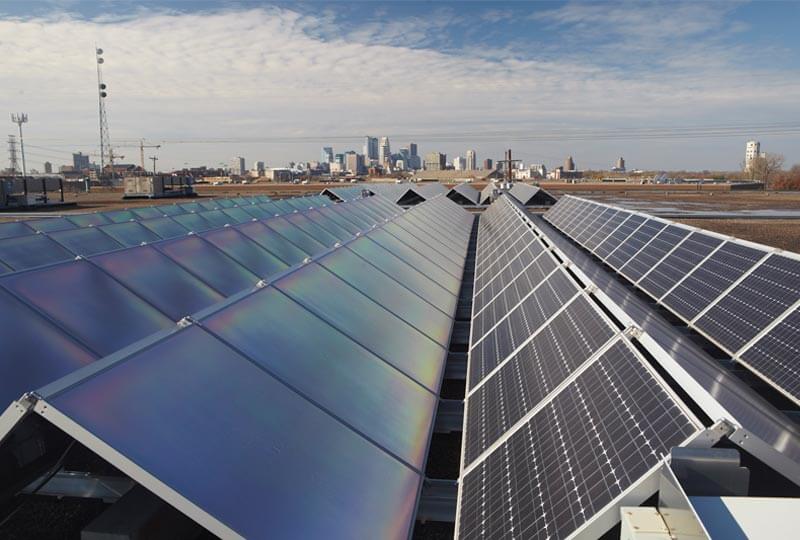
SOLAR POWER
Murphy has installed Minnesota-made solar panels and power systems** at five of our logistics campuses. We generate 320 kilowatts of energy, making Murphy the third largest generator of solar energy in Minnesota, and the only private company that makes its own solar power. These unique solar panels, made by Minnesota based tenKsolar, take up less than two percent of our warehouse roof surface, yet generate more than 50 percent of the power used by the facility, with all excess electricity routed to the power grid. We pass our savings in energy costs along to our customers.
STORMWATER MANAGEMENT
Murphy has installed storm water management systems at several of our logistics campuses to mitigate the flow of precipitation from entering municipal water systems. Logistics campuses are highly developed spaces with a number of paved surfaces that resist water. As a result, rain water, melting snow and other precipitation can run offsite into municipal storm water systems, and in many cases, lead to environmental impact fees. Murphy has invested in an ecologically friendly solution to handle this problem by installing holding ponds, retention basins, rain gardens and native prairies at many sites. These systems improve water quality and recharge ground water. Our customers benefit as we reduce our operational costs by eliminating environmental impact fees.
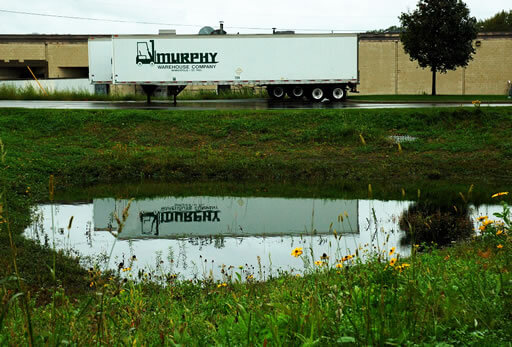
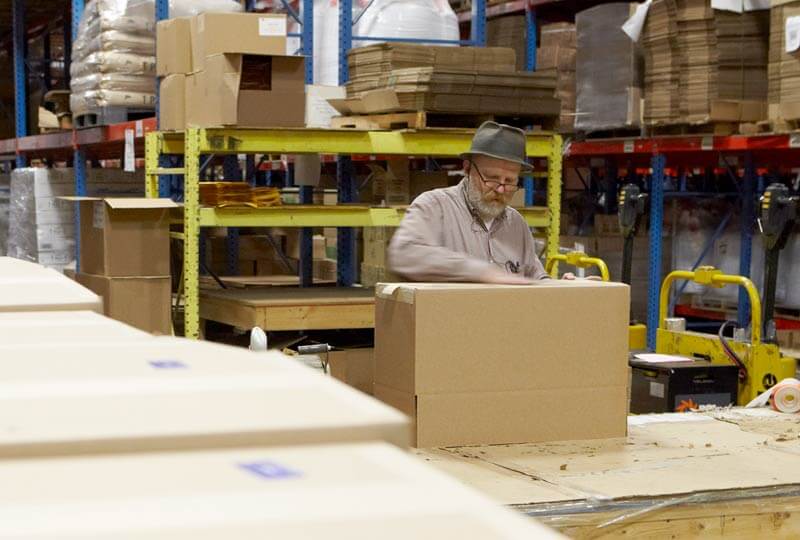
ISO 14001
Murphy is one of approximately 50 Minnesota firms to attain ISO 14001 certification of its logistics campuses. Administered through the International Organization for Standardization, the certification recognizes organizations that implement and manage an effective environmental management system (EMS). Murphy earned the certification by establishing, implementing and improving its EMS, and then developing an accountability system to ensure that requirements are met. We work to maintain sustainable practices through the ISO certification process, demonstrating our commitment to sustainability to our customers, the industry and the community.
GREEN CONSULTING SERVICES
Over the next decade, government mandates and/or industry standards will require businesses to implement sustainable business practices. As an award-winning leader in this effort, Murphy is pleased to consult with businesses interested in exploring this transition. We often consult with our customers and business partners on launching their own sustainability initiatives, and we are experienced in developing solutions and budgets that can initiate the process. Contact us to learn more about our green consulting services.
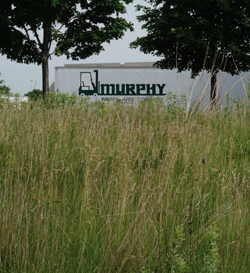
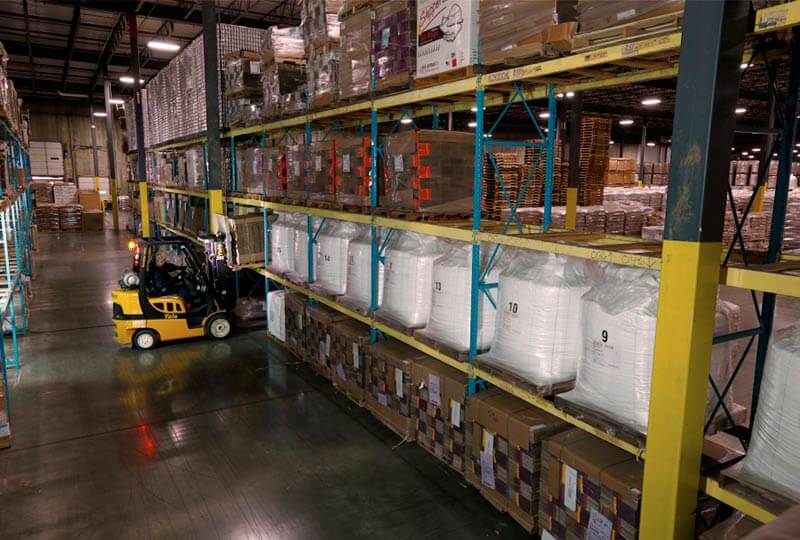
LEED CERTIFICATION
Many Murphy campuses have been awarded Leadership in Energy and Environmental Design (LEED) Gold and Silver, which certifies that these sites are operating in an environmentally sustainable manner, which includes energy management, pollution and emissions mitigation and storm water management.
Created by the U.S. Green Building Council, the LEED program is an internationally recognized certification system for buildings, homes and communities that are designed, constructed, maintained and operated for improved environmental and human health performance.
Our LEED certified buildings enable us to operate in an environmentally sustainable way, but our customers also achieve their best practices and sustainability goals as well.

